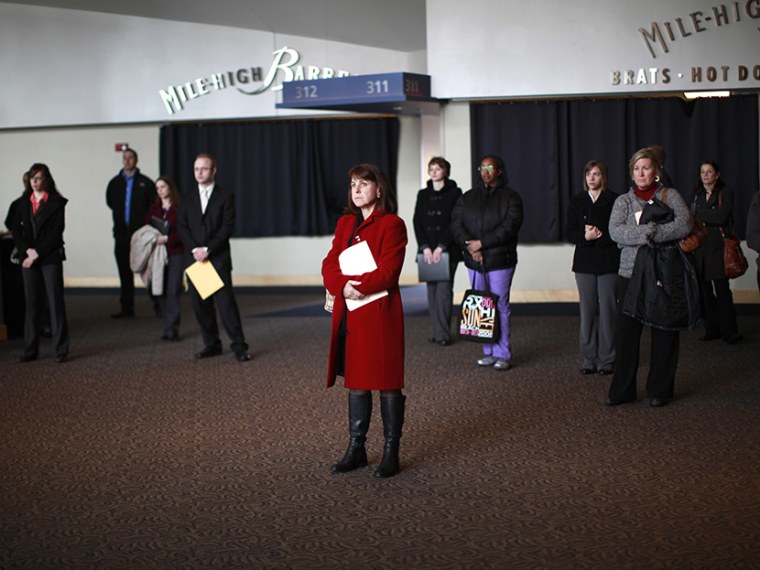The unemployment rate fell from 7.6% percent to 7.4% in July. But don't break out the party hats: One major reason the rate continued to edge downward was that more people have given up the search for work entirely in a sluggish economy.There were 988,000 discouraged workers in July who weren't looking for work because they didn't believe there were any jobs available to them. That's 136,000 more than in the previous year, and it may be for good reason: Only 162,000 payroll jobs were added in July, significantly below analyst expectations of 185,000 to 200,000. And there were actually 26,000 fewer jobs added in May and June than the Labor Dept. originally reported, according to the agency's new revisions of the numbers.
The good news is that the economy continues to steadily recover and add jobs month by month. The bad news is that it's done so at a snail's pace. Despite a recovery in the housing market and business investment, GDP growth over the past nine months has averaged just 1% over the past nine months, which has been a weak engine for adding jobs.What's more, many of the new jobs are in low-wage, part-time industries: Retail, leisure, hospitality, and temp jobs were among the biggest areas of growth in July. "Of the 227,000 net new jobs in the household survey, 45% were part-time," estimated Gus Faucher, senior economist for PNC Bank. Meanwhile, average hourly wages fell slightly from the previous month, down two cents to $23.98, and the average number of hours worked also declined. "With the combination of more jobs, a slight drop in wages, and a shorter workweek, workers' earned income fell by 0.3% in July," Faucher concluded.The big concern is what these trends mean for America's long-term economic health. Those dropping out of the labor force may find it even harder to find work in the future. Wages are stagnant in an economy that's still heavily reliant on personal consumption. And rather than tackle the big structural problems with the economy, lawmakers have insisted on government austerity that continues to be a drag on jobs and growth.Watch the coverage from Friday's Morning Joe:
